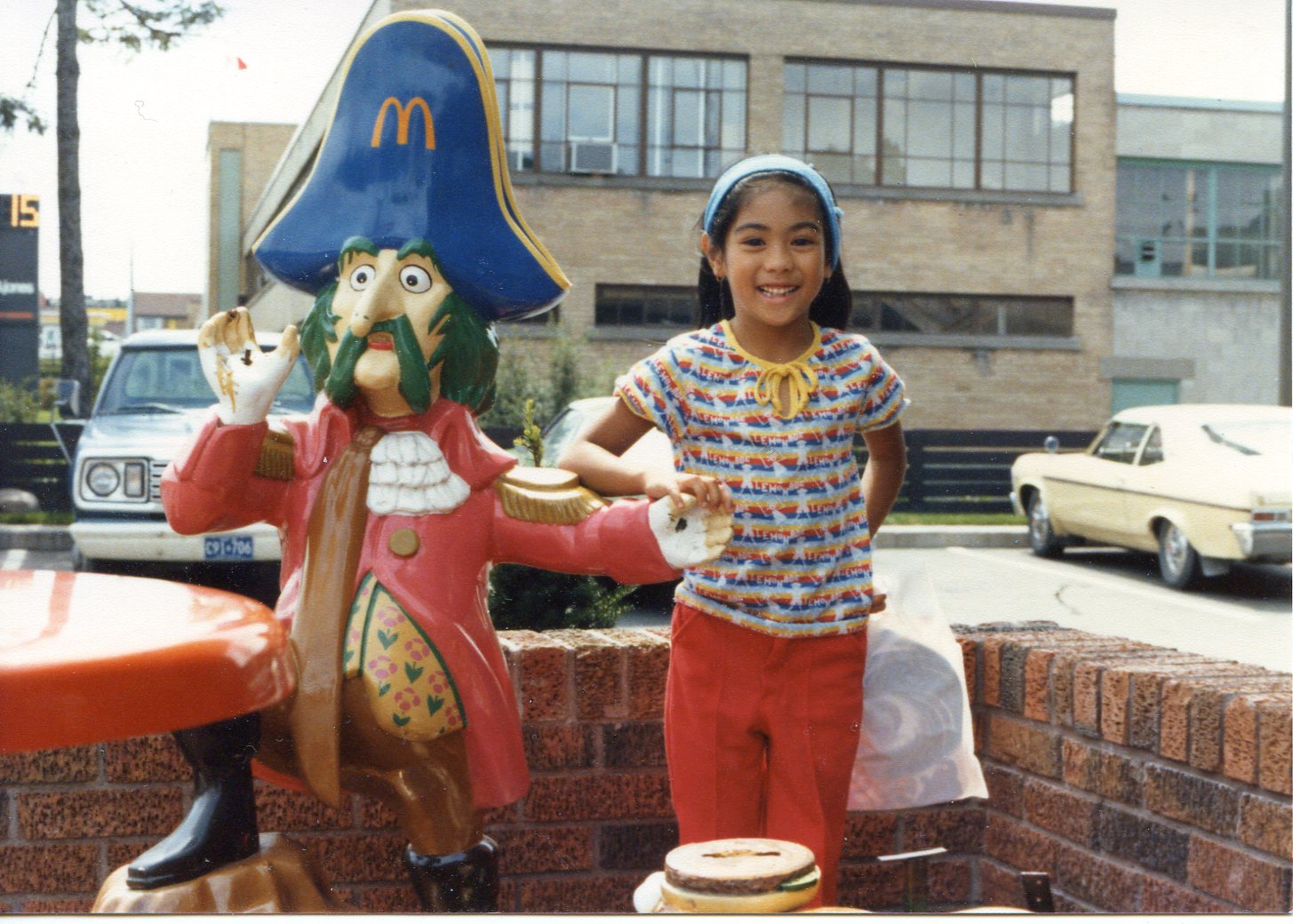(Hellooo … Part Five of a six-day series to celebrate NIAW. I’d say it’s because I “planned” it that way … but the truth is, the series started out as one extremely looong post. To start at the beginning, click here.)
 First, let me pose this question. Do you remember that childhood rhyme that starts off with a boy and a girl “sitting in a tree / K-I-S-S-I-N-G”? Well, if you do, you’ll remember that it continues on to falling in love with the next step being marriage. It finally concludes with this particular “couple’s” child in a baby carriage.
First, let me pose this question. Do you remember that childhood rhyme that starts off with a boy and a girl “sitting in a tree / K-I-S-S-I-N-G”? Well, if you do, you’ll remember that it continues on to falling in love with the next step being marriage. It finally concludes with this particular “couple’s” child in a baby carriage.
The reason I bring this up is because this “path” in life is something that is taught to us at a very early age. A path that “society” expects every person to follow. It’s also this type of rhyme that often has little girls already imagining falling in love and planning their “dream” wedding. And that the next “obvious” milestone in life is all about having a baby.
However, the reality is this: As much as the majority of American society look down upon it … or simply “ignore” it … love (as in “couple” love) is not always about a boy and a girl. Furthermore the US Vital statistics state that 51 out of 1000 live births in 2006 were to unmarried women between the ages of 15 to 44.* So much for marriage before the baby carriage.
The truth is that every person’s life takes a different path. And sometimes a person’s life doesn’t follow what society considers as “normal.” But because such thinking is ingrained into the general population at a very early age, anything that doesn’t follow the customary flow is considered unorthodox. The unfamiliarity of any person deviating from this path brings about awkwardness amongst the rest of his/her surrounding company.
And how does all this pertain to infertility and loss of contact amongst the rest of society? Well, when the general public considers the concept of a “nuclear family” (a couple comprised of partners of the opposite sex and their children all living in the same household) the “norm” … it makes it quite difficult for the infertile couple to “fit in.”
Adding on to that last statement, modern society today has obviously placed an emphasis on family and children. When everything from advertising and marketing to politics involve the importance of that “nuclear family”, how can you not find yourself involved in a conversation surrounding children?
Eventually when others find out that your married with no children, the first reaction is typically “Why?” Which is then followed closely by “Isn’t your biological clock ticking?” To me, this reaction is society’s way of trying to “include” you in a conversation about children and how important it is to have them.
For those experiencing infertility … it’s akin to “preaching to the choir” … believe me, we know how important children are. We wouldn’t be going through all the work-up, testing and heartbreak if we didn’t comprehend the importance of having children.
And for those of you brave enough to share with society your experiences with infertility, I’ll bet that the most common reaction of those “fertile” people is to redirect the conversation … quite frankly out of pure awkwardness of not knowing how to respond. In turn this action, whether intended or not, effectively separates you from that particular social connection. Because (and be truthful, my fertile friends …), how many other conversations can one have with you that doesn’t somehow develop into something related to their child? Especially since their lives (rightfully) revolve around their children and their needs.
This loss of connection amongst other couples, whether intentional or not, is lonely. It’s difficult to go through all the emotions of infertility by itself; however, adding the element of isolation creates gargantuan roadblocks when seeking even a little bit of support.
Let me use this as an example. For my “fertile friends” out there … when you started “planning” your family, was this topic something that you discussed with anyone and everyone? Chances are, you’ve answered this with a “No.”
That’s because “polite society” dictates that these topics are best discussed at home. Behind closed doors. I mean, really … as crude as today’s society can be … family planning is still considered a private affair.
Now put that in context with a couple experiencing infertility. And add to that the pressure that society places on every human being to procreate. How would you try to find support for an issue that is considered by society as both private and paramount?
Because of the privacy of such a topic, the average person is simply not equipped to discuss such “sensitive” issues such as infertility. Nor would they be able to understand some of the reasons behind their infertile friends’ behaviors (avoiding baby showers, for instance … or the lack of excitement about any pregnancy news). And because of that, the average person wouldn’t feel comfortable in providing any support to a friend traveling through infertility.
This is when learning about what kind of support you can provide to a friend becomes important. This is when it’s essential to bust the many myths you might have about infertility; to know what might help your infertile friend feel less uncomfortable about discussing such a sensitive topic. This is when understanding infertility and its effects on a person’s daily life is crucial.
Because ultimately … and I’m not just referring to infertility here … it’s often the misunderstanding of such matters that drives the wedge between what society deems as “normal” and “abnormal.”
(It concludes. Tomorrow.)
~~*~*~*~*~*~*~*~*~*~*~~
* Heh. Apparently, the latest statistics for 2007 are even more staggering!






 That Saturday we were talking about childhood memories. The kind of memories that no one else but one or the other could remember. The ones that everyone else might think was crazy and make-believe. But the ones we knew in our minds were true.
That Saturday we were talking about childhood memories. The kind of memories that no one else but one or the other could remember. The ones that everyone else might think was crazy and make-believe. But the ones we knew in our minds were true.
 So there you go … apparently I really don’t pull things out of thin air (or from my a$$, as others might say). But ain’t it a sad state of affairs when I can remember silly trivial things … and yet I struggle with remembering where I last put my cell phone?
So there you go … apparently I really don’t pull things out of thin air (or from my a$$, as others might say). But ain’t it a sad state of affairs when I can remember silly trivial things … and yet I struggle with remembering where I last put my cell phone?
